
18 Quotes By Socrates On The Purpose And Wisdom Of Life
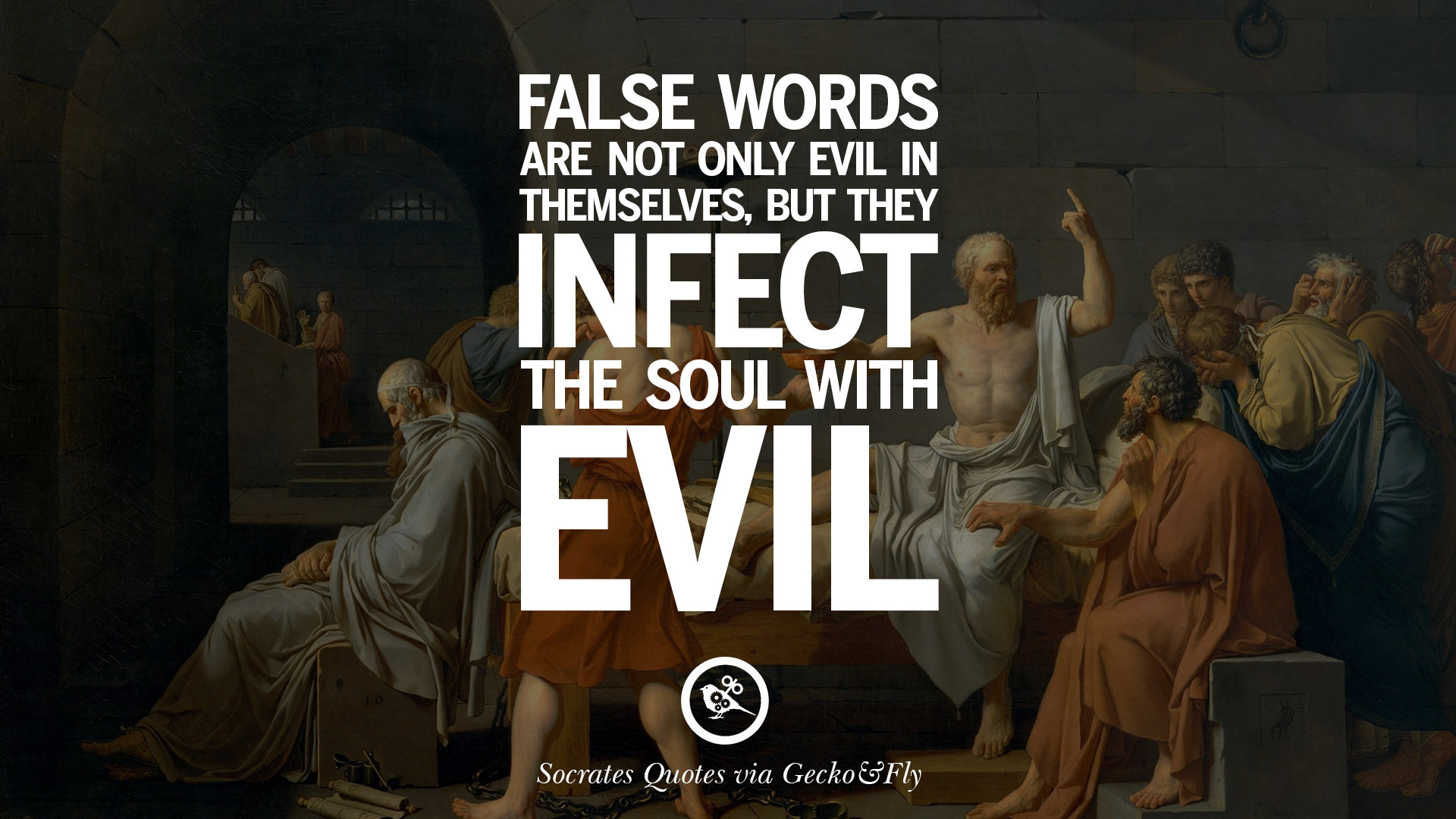
The Apology of Socrates, by the philosopher Plato (429-347 BC), was one of many explanatory apologia about Socrates's legal defense against accusations of corruption and impiety; most apologia were published in the decade after the Trial of Socrates (399 BC). [3] As such, Plato's Apology of Socrates is an early philosophic defence of Socrates.
Socrates Quote “If one knows what is right, he will do it; nobody wants to be evil.” (11
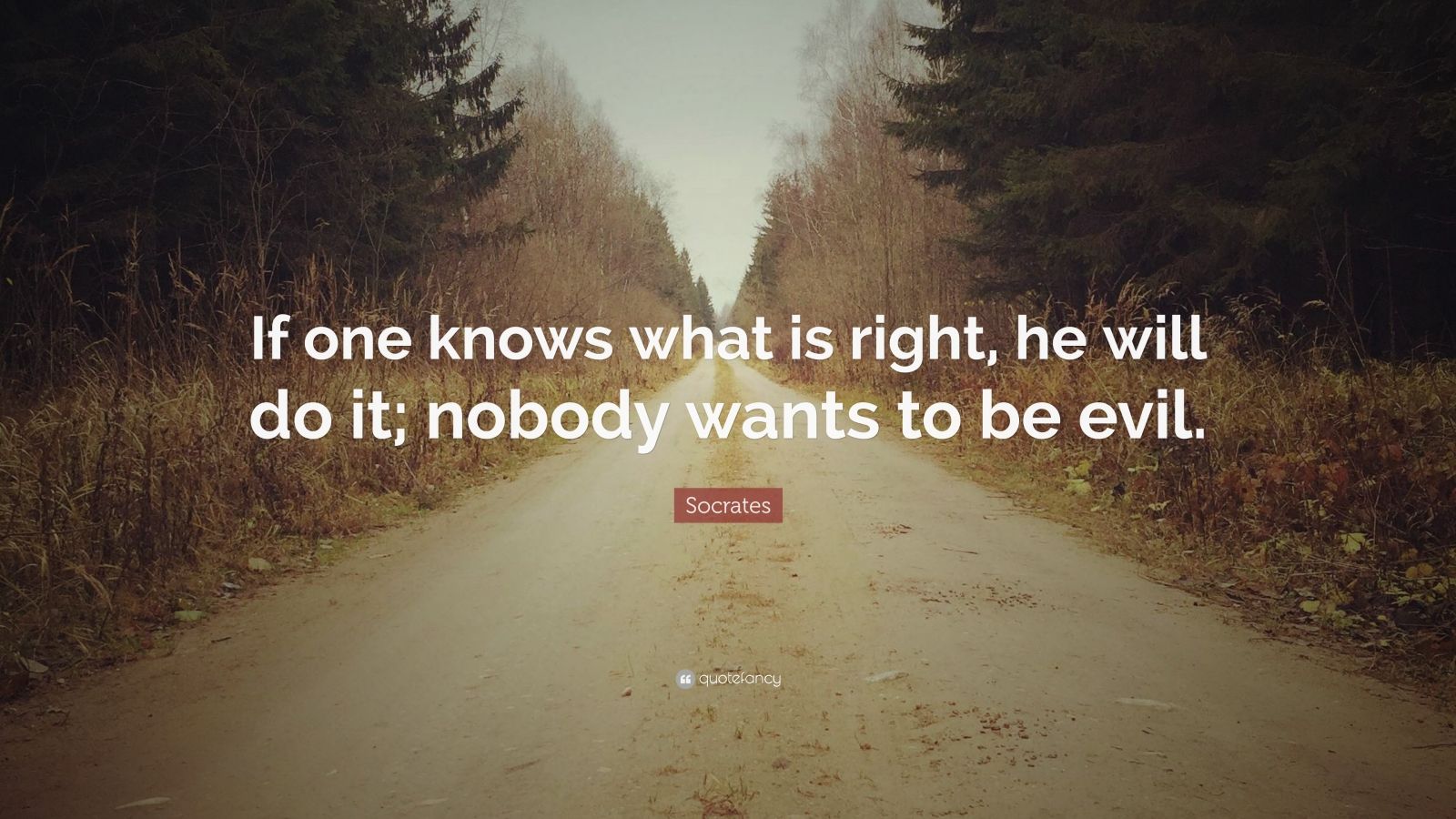
There is but one evil, ignorance. Socrates Ignorance, Evil, Religion He said that there was one only good, namely, knowledge; and one only evil, namely, ignorance. Socrates Ignorance, Evil, Wickedness False language, evil in itself, infects the soul with evil. Socrates Evil, Soul, Language The misuse of language induces evil in the soul. Socrates
The real danger in life is not death, but living an evil life. Socrates quotes
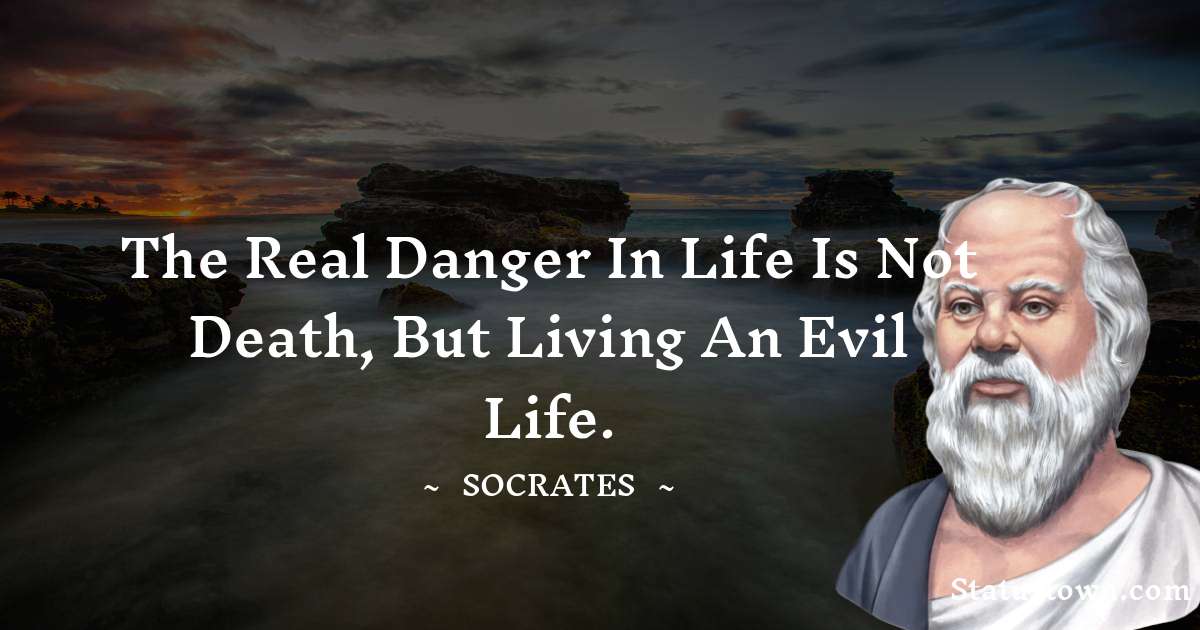
First published Tue Nov 26, 2013; substantive revision Mon Oct 3, 2022 Since World War II, moral, political, and legal philosophers have become increasingly interested in the concept of evil.
Socrates Quote “There is only one good, knowledge, and one evil, ignorance.” (21 wallpapers
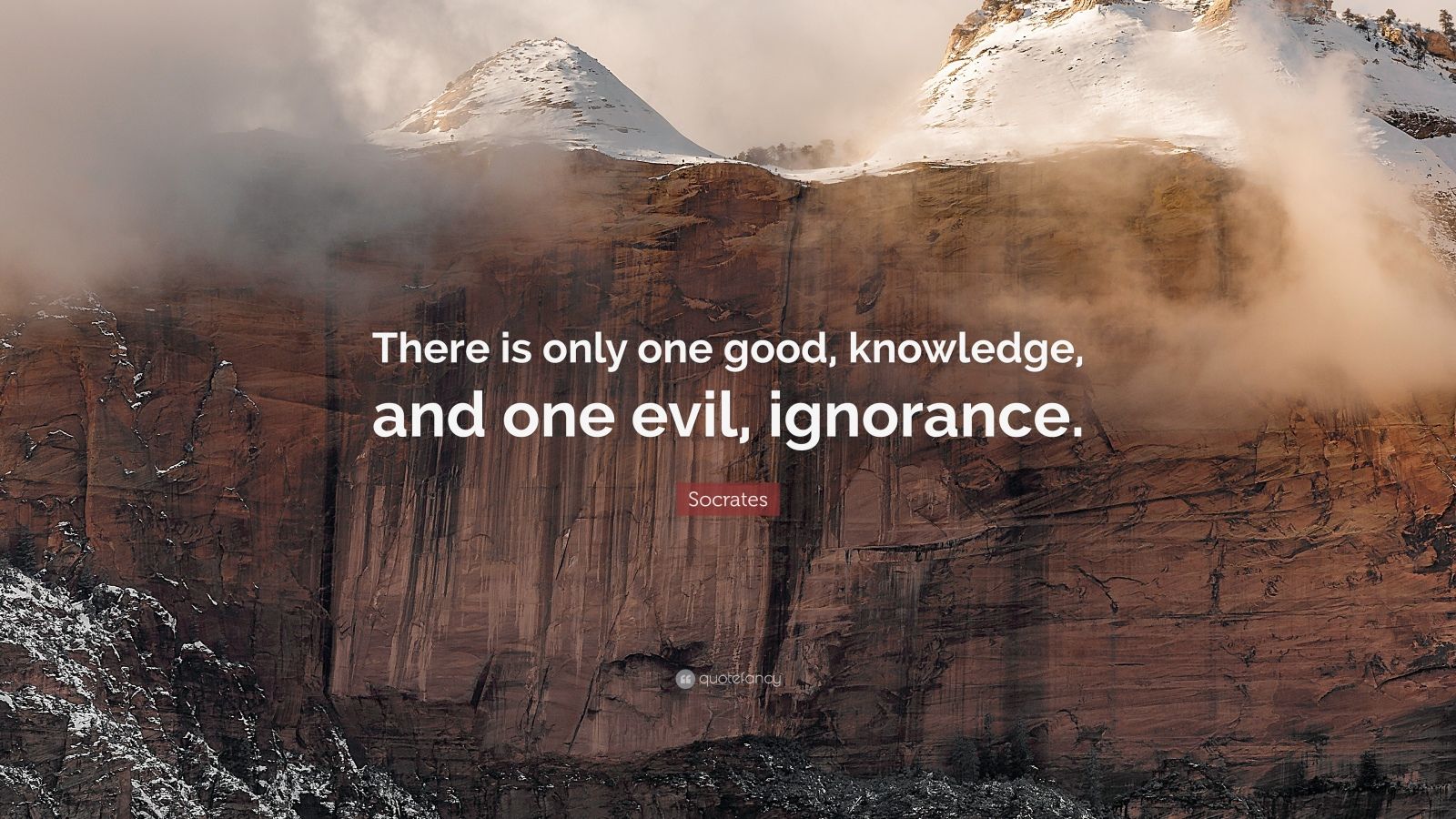
Socrates believed that human beings are not inherently evil, but rather, they can be led astray by sheer ignorance. He famously claimed that "the unexamined life is not worth living," highlighting the importance of introspection and self-reflection in order to attain true wisdom.
Only evil Socrates quote stock image. Image of chalkboard 164783837

Socrates 469-399 bcGreek philosopher. How many things I can do without! I know nothing except the fact of my ignorance. The rest of the world lives to eat, while I eat to live. To fear death, my friends, is only to think ourselves wise, without being wise: for it is to think that we know what we do not know.
16 Priceless and Wise Quotes from Socrates

14 Sourced Quotes View all Socrates Quotes I would not have him sorrow at my hard lot, or say at the burial, Thus we lay out Socrates, or, Thus we follow him to the grave or bury him; for false words are not only evil in themselves, but they infect the soul with evil.
"There is only one good knowledge and one evil ignorance. " Socrates [1080x1080] (With images

Socrates exhibited a "daimonion" — a divine sign or inner voice which issued prohibitory messages in periods of Socratic spells (which some writers find suggestive of epilepsy). The Delphic Oracle states, "There is no person living wiser than Socrates."
Socrates Quote “There is only one good, knowledge, and one evil, ignorance.” (21 wallpapers
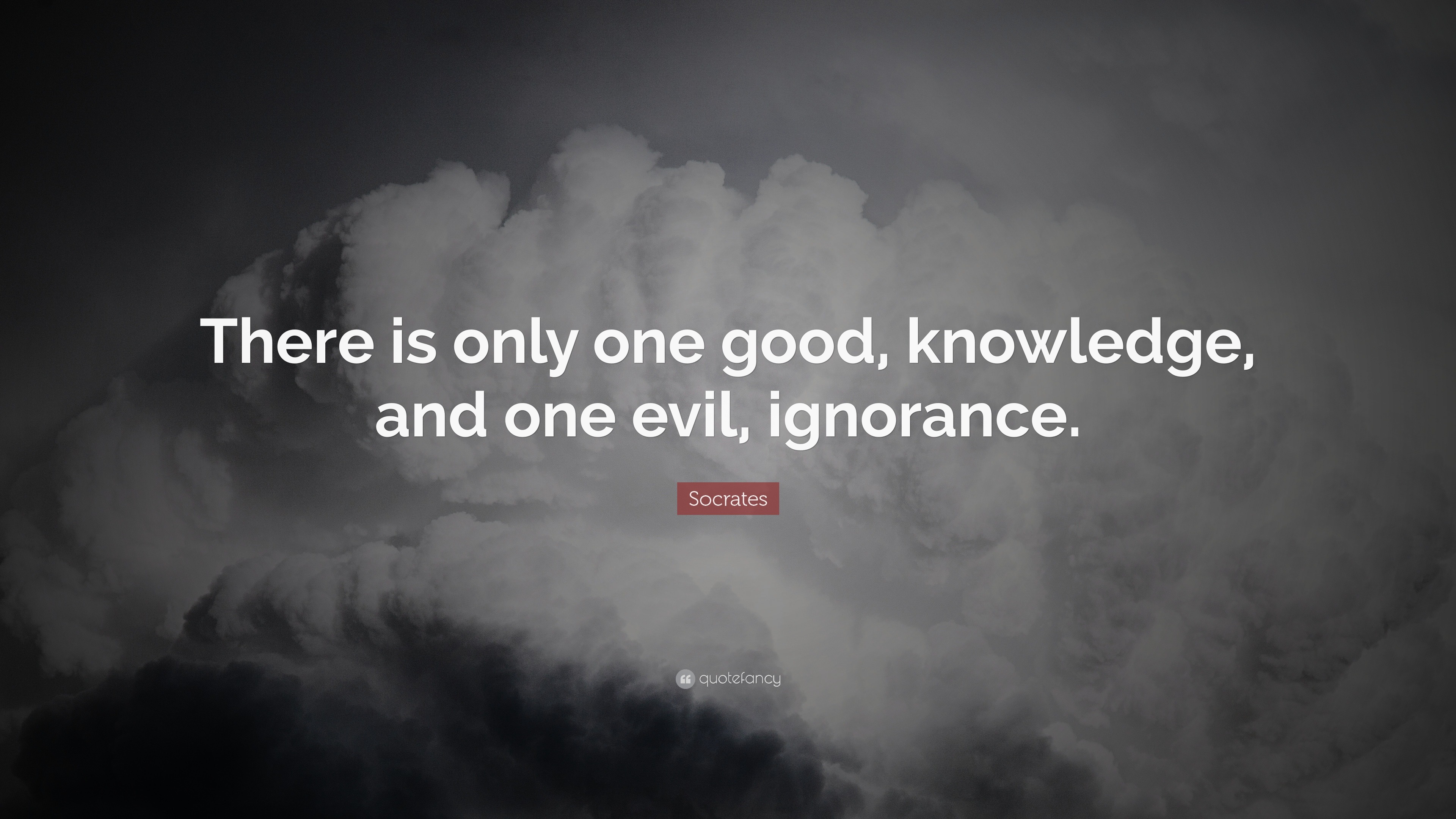
v. t. e. " I know that I know nothing " is a saying derived from Plato 's account of the Greek philosopher Socrates: "For I was conscious that I knew practically nothing." (Plato, Apology 22d, translated by Harold North Fowler, 1966). [1] It is also sometimes called the Socratic paradox, although this name is often instead used to refer to.
Socrates Quote “If one knows what is right, he will do it; nobody wants to be evil.”

Socrates (/ ˈ s ɒ k r ə t iː z /; Greek: Σωκράτης; c. 470 -399 BC) was a Greek philosopher from Athens who is credited as the founder of Western philosophy and among the first moral philosophers of the ethical tradition of thought. An enigmatic figure, Socrates authored no texts and is known mainly through the posthumous accounts of classical writers, particularly his students.
Socrates Quote “If one knows what is right, he will do it; nobody wants to be evil.” (11

Plato Plato Plato, marble portrait bust, from an original of the 4th century bce; in the Capitoline Museums, Rome. (more) Socrates' greatest disciple, Plato, accepted the key Socratic beliefs in the objectivity of goodness and in the link between knowing what is good and doing it.
PPT Socrates on Evil And Ignorance PowerPoint Presentation, free download ID5725504
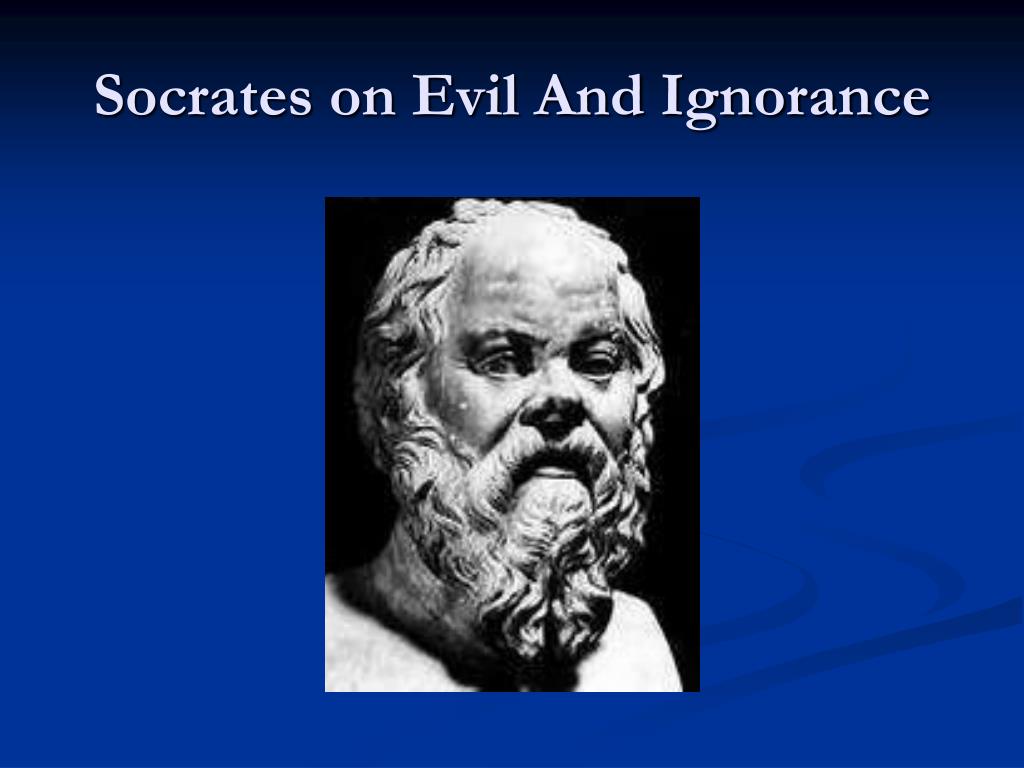
Socrates makes the claim in The Apology that no one knowingly does evil. To clarify, Socrates does not mean to suggest that no one ever commits an evil at out of hatred or selfishness. Rather, he wishes to suggest that hatred, selfishness, and any other source of evil action can ultimately be traced back to ignorance.
There is but one evil, ignorance. Socrates quotes

The founder of Stoicism, Zeno of Citium, is said to have studied with Crates (6.105 and 7.2), who is supposed to have absorbed Cynicism from Diogenes of Sinope (6.85 and 87), and Diogenes, in turn, reportedly earned the label "Cynic" under the influence of Antisthenes (6.21), who is called a follower of Socrates (6.2). Download Free PDF View PDF
16 Socrates Quotes On Evil YouTube

Primary-source accounts of the trial and execution of Socrates are the Apology of Socrates by Plato and the Apology of Socrates to the Jury by Xenophon of Athens, both of whom had been his students; modern interpretations include The Trial of Socrates (1988) by the journalist I. F. Stone, and Why Socrates Died: Dispelling the Myths (2009) by the.
Socrates on Good and Evil by fiskefyren on DeviantArt
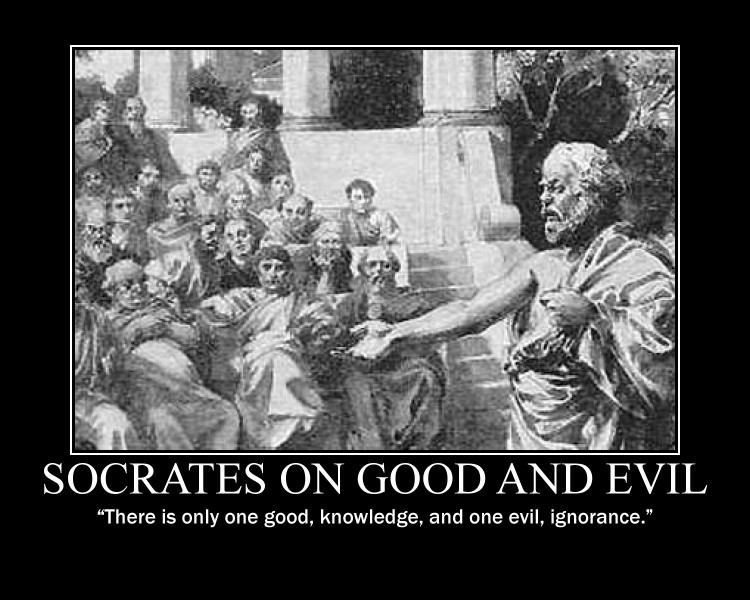
The philosopher Socrates remains, as he was in his lifetime (469-399 B.C.E.), [] an enigma, an inscrutable individual who, despite having written nothing, is considered one of the handful of philosophers who forever changed how philosophy itself was to be conceived. All our information about him is second-hand and most of it vigorously disputed, but his trial and death at the hands of the.
False words are not only evil in themselves, but they infect the soul with evil Socrates

Socrates. (469—399 B.C.E.) Socrates is one of the few individuals whom one could say has so-shaped the cultural and intellectual development of the world that, without him, history would be profoundly different. He is best known for his association with the Socratic method of question and answer, his claim that he was ignorant (or aware of.
Socrates Quote “There is only one good, knowledge, and one evil, ignorance.” (21 wallpapers
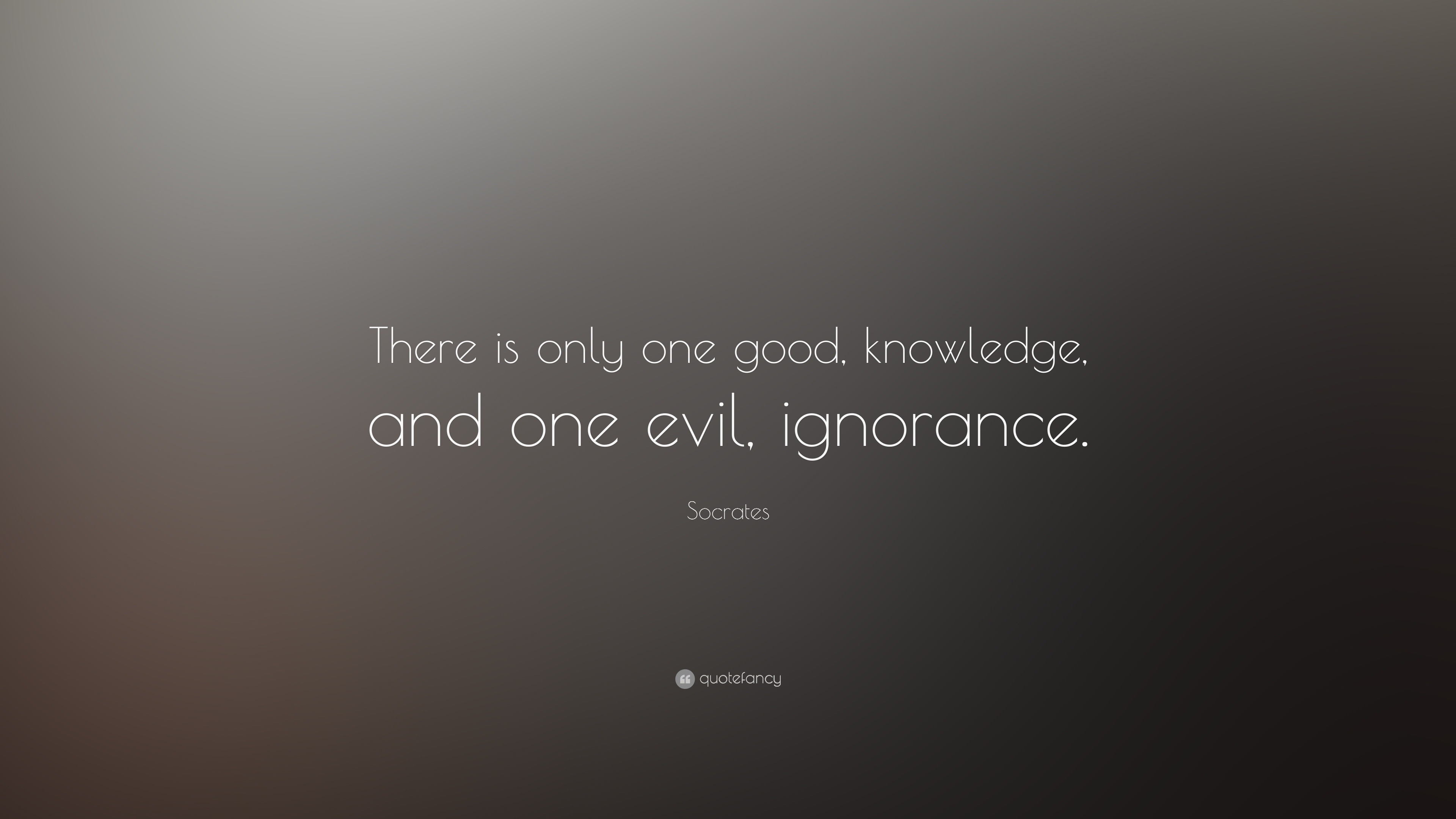
Full Work Summary Plato's The Apology is an account of the speech Socrates makes at the trial in which he is charged with not recognizing the gods recognized by the state, inventing new deities, and corrupting the youth of Athens. Socrates' speech, however, is by no means an "apology" in our modern understanding of the word.